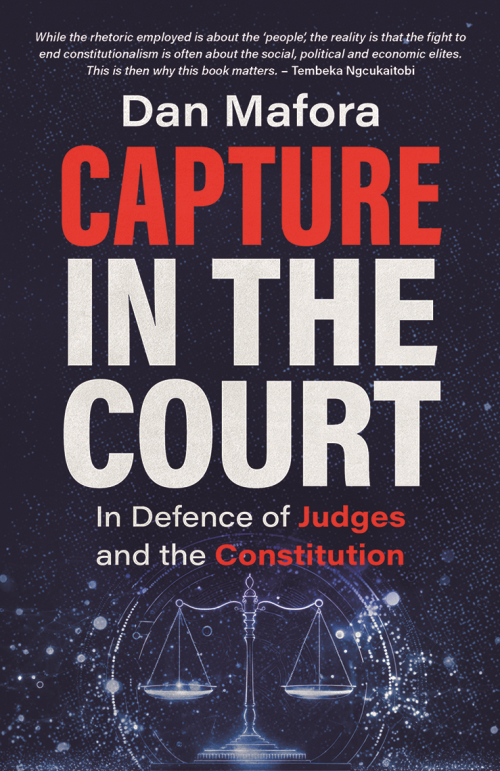Capture In The Court

Capture in the Court – In Defence of Judges and the Constitution
By Dan Mafora
Tafelberg. $11 (Kindle)
Dan Mafora’s new book, Capture in the Court – In Defence of Judges and the Constitution, likens the rising rebellion against judges and the constitution to 'judicial capture'. He labels this rebellion 'anti-constitutionalism' and explains the key factors behind 'the less-than-happy relations between the courts and politicians'. Mafora writes from an insider-outsider perspective. He is a senior researcher at the non-profit Council for the Advancement of the South African Constitution, an ex-corporate lawyer, and a former clerk in the Constitutional Court of South Africa. Although its title seems sensationalist, it is justified by its depressing evidence. Mafora traces lawfare to the ANC’s failure on two counts. One was the failure to choose between constitutionalism and 'people’s power' during the 1990s negotiations that ended apartheid. The other was its failure to fully promote constitutionalism afterwards. It ideologically linked 'people’s power' to its National Democratic Revolution. This Soviet-inspired concept aimed at realising a social system between capitalism and communism. The ANC was happy with constitutionalism as long as its outcomes coincided with the goals of the National Democratic Revolution. Failing this, it tried unsuccessfully to manipulate the judiciary to realise these goals. Significantly, South Africa’s constitution claims authority over African customary laws and the colonially imposed European laws regarded as the common law. But given its intellectual roots in European laws, the constitution’s authority over the common law is like regulating itself. So, in my view, the constitution is part of Roman-Dutch law, and therefore part of the colonial heritage. Mafora’s book is nevertheless important for understanding and managing the relationship between judges, politicians and the constitution. It is timely because South Africa is facing an existential crisis of service delivery, which belies the post-apartheid optimism of good governance.
